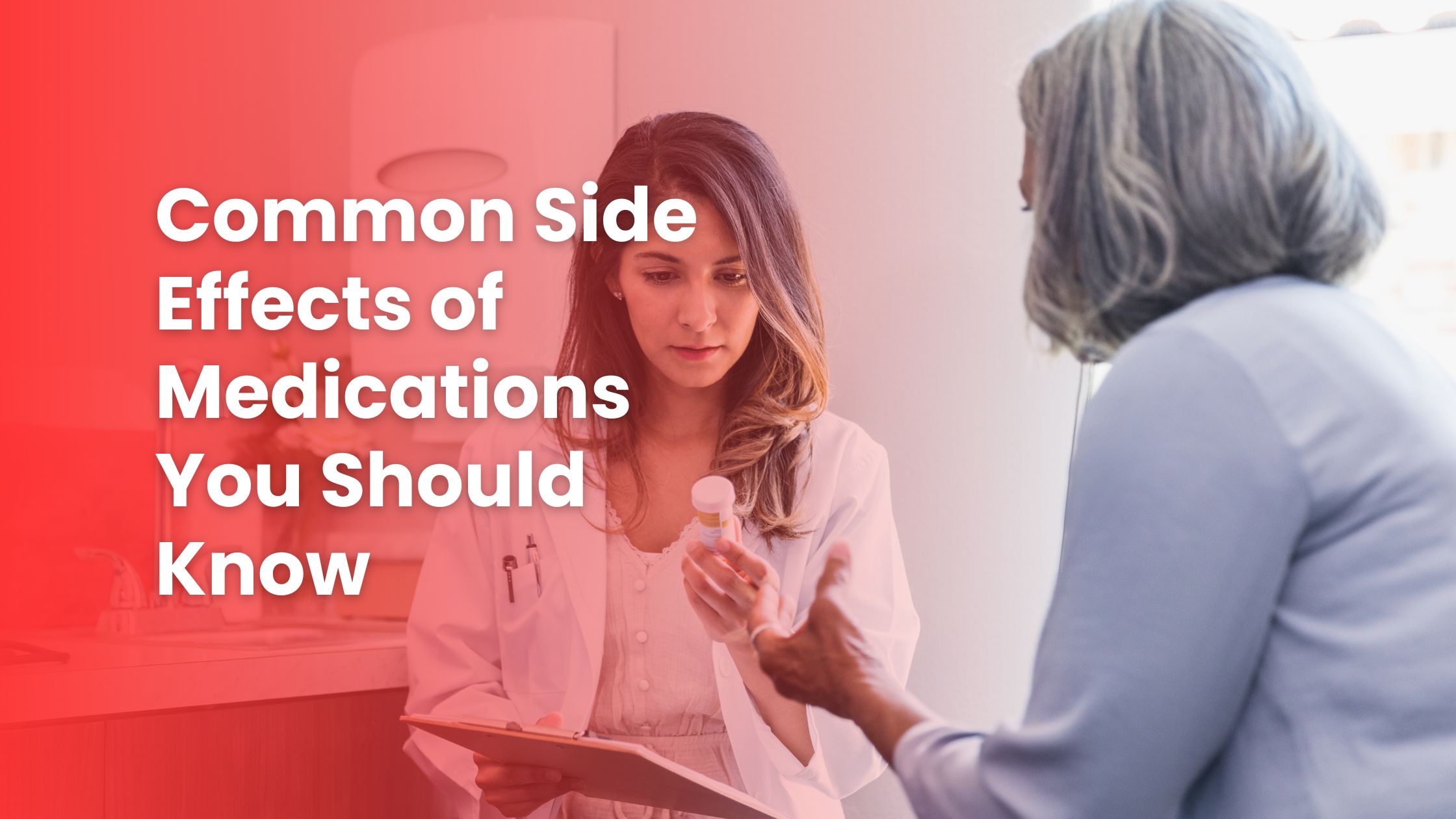Introduction
Medications play a crucial role in managing health conditions and improving quality of life. However, they often come with side effects. Understanding these side effects is essential for maintaining your health and well-being. This guide will help you recognize common medication side effects and offer practical advice on managing them.
Common Side Effects of Medications
Gastrointestinal Issues
One of the most common side effects of medications is gastrointestinal discomfort. This can include nausea, vomiting, diarrhea, and constipation. Antibiotics, for instance, can disrupt the natural balance of bacteria in the gut, leading to diarrhea. Painkillers like NSAIDs can irritate the stomach lining, causing nausea or even ulcers.
To manage these side effects, take medications with food when possible. This can help protect your stomach lining and reduce nausea. Staying hydrated is also crucial, especially if you experience diarrhea or vomiting. If constipation is a problem, increasing your fiber intake through fruits, vegetables, and whole grains can be beneficial. Over-the-counter remedies may also provide relief but consult your doctor before taking additional medications.
Drowsiness and Fatigue
Many medications, including antihistamines, antidepressants, and certain pain relievers, can cause drowsiness and fatigue. This side effect can impact your daily activities, making it difficult to concentrate or perform tasks safely. If you find yourself feeling unusually tired after starting a new medication, it’s important to consider this as a potential side effect.
To manage drowsiness and fatigue, try adjusting the timing of your medication. Taking it before bed might help you avoid feeling sluggish during the day. Additionally, ensure you are getting enough rest at night and maintaining a healthy sleep schedule. If the drowsiness persists, talk to your doctor about possible alternatives or adjustments to your dosage.
Allergic Reactions
Allergic reactions to medications can range from mild to severe. Common signs include rash, itching, and swelling, while more serious reactions can cause difficulty breathing and anaphylaxis. Penicillin and sulfa drugs are known to cause allergic reactions in some individuals.
If you suspect an allergic reaction, stop taking the medication and contact your doctor immediately. For mild reactions, over-the-counter antihistamines might help alleviate symptoms. Severe reactions require emergency medical attention. Always inform healthcare providers of any known drug allergies to prevent future incidents.
Weight Changes
Certain medications can lead to weight gain or loss. Antidepressants, antipsychotics, and corticosteroids are commonly associated with weight gain, while some medications for ADHD and diabetes can cause weight loss. These changes can affect your overall health and self-esteem.
To manage weight changes, focus on a balanced diet and regular physical activity. If weight gain or loss becomes a significant issue, discuss it with your doctor. They may be able to adjust your medication or suggest strategies to help manage your weight more effectively.
Managing Medication Side Effects
When to Contact Your Doctor
It’s crucial to know when to seek medical advice for medication side effects. If you experience severe symptoms like difficulty breathing, severe rash, or swelling, contact your doctor immediately. For less severe side effects that persist or worsen, a consultation with your healthcare provider is also recommended. They may adjust your dosage or switch you to a different medication.
Lifestyle Adjustments
Making lifestyle adjustments can help manage some side effects. For instance, eating a healthy diet, staying hydrated, and getting regular exercise can mitigate gastrointestinal issues and weight changes. Ensuring adequate rest can help with drowsiness and fatigue. Additionally, keeping a symptom diary can help you and your doctor identify patterns and make necessary adjustments to your treatment plan.
Conclusion
Understanding and managing medication side effects is essential for maintaining your health and well-being. By being aware of common side effects and knowing when to seek medical advice, you can better navigate your treatment. Always consult your healthcare provider with any concerns about your medications to ensure safe and effective use.




